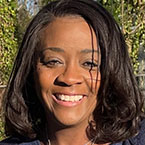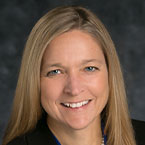By: Jennifer Zubler, MD, FAAP
During your child's first few years, their brain grows and develops at an amazing pace. As a parent, you become an expert on your child's progress as they learn to understand and engage with the world around them. You also become their first teacher.
That's a big job, but don't worry—you are not alone!
Identify your team
As you help your child thrive, pediatricians, child care providers, preschool teachers and other professionals your family works with are great resources. It is common for parents to have questions about their child's growth and development. These early childhood professionals enjoy answering questions and are happy to offer guidance.
These professionals will also look to you, as the expert on your child, for information. What you share with early childhood professionals about your child helps them to provide their best services. It helps them understand your child's strengths, for example, and identify areas where they can adjust their support to meet your child's individual needs. Together, you and early childhood professionals form a "team" for your child's growth and development.
Share early, share often
When you talk with your pediatrician at
well-child visits or meet with your child's teachers, share your experiences, thoughts, successes and concerns about your child's development. Expect them to share theirs with you, too. To provide you with the best advice, team members may ask you to answer questions or fill out
surveys or developmental screening tools about your child's development. They may also ask you to share information from other professionals who work with your child.
Sharing information among all team members can help you make informed decisions on how to best support your child's development. You can provide valuable information about how your child plays, learns, speaks, acts and moves at home. Teachers can share how your child is doing with school routines and interactions with classmates. Pediatricians can review and explain
developmental screening results which can help determine if
early interventions (like speech therapy) or additional evaluations might be helpful.
You may not feel comfortable discussing your child's development or sharing concerns at first, but keep in mind that other team members are happy to discuss questions and concerns. They know a lot about child development and the developmental challenges children can experience. They want to support your child and help them get any needed interventions as early as possible, when it can make the most difference.
Use available resources
Using free resources like our
Ages & Stages articles and the Center for Disease Control and Prevention's
Milestone Tracker app or
milestone checklists can help you:
Celebrate and monitor your child's developmental milestones (how they play, learn, speak, act and move)
Support your child's
healthy development through everyday activities like talking, reading and playing
Answer developmental questions doctors, teachers and others may ask you about
Share and discuss any concerns you may have
Discuss with professionals if additional developmental screenings, other evaluations, or referrals for
early intervention are needed

Create a Support Team To Help Your Child Thrive
By: Donna Morgan Johnson
 As a young mother, I did not have the child-rearing support, experience or wisdom of my mother. She died when I was a teenager.
As a young mother, I did not have the child-rearing support, experience or wisdom of my mother. She died when I was a teenager.
I felt unsure of how to best support my three wonderful daughters in their growth and development. That's why I realized early on that I needed to identify a "team" of people to help guide me. My support team included my children's pediatrician, and later on, their teachers. This proved to be very helpful.
At one point, one of my daughters had stopped talking and responding to me when I called her name. When I shared my concerns with well-meaning friends, some told me to give her time and tried reassuring me that twins have their own language. Thankfully, I had read a lot about child development. I also listened to the pediatrician when she talked about developmental milestones, noting how much doctors rely on parent input to help assess how a child is developing.
So, I asked the pediatrician if I needed to be concerned about the changes I'd noticed in my daughter. The doctor listened to my concerns, evaluated my daughter, and agreed there was a change in her communication. She then referred her for a free evaluation for developmental concerns offered by all states. My daughter met eligibility requirements and began in-home early intervention services.
The pediatrician explained that developmental delays are common. Parents don't cause them, but they can make a difference by getting their child support services if they notice delays.
When my daughter started school, I knew it was important to continue monitoring her development. Her teachers were a part of the "support team." I shared any concerns about her development and relied on them to share her progress and any concerns with me and her pediatrician. In this way, we could all work together to support my daughter.
I was glad I spoke with my pediatrician and shared my concerns early on.
I encourage other parents to celebrate and monitor their child's development. And don't hesitate to share any concerns with your child's support team.
Donna Morgan Johnson, MHS,
serves as the parent representative and faculty on the Autism Subcommittee - Council on Children with Disabilities for the American Academy of Pediatrics. She co-authored the AAP toolkit, "Caring for Children with Autism Spectrum Disorder: A Practical Resource Toolkit for Clinicians- 3rd Edition." Ms. Johnson is the Family Support Director of Development and Partnerships at the Georgia Department of Early Care and Learning.
Remember
You are not alone in monitoring and supporting your child's development. Team up with your child's pediatrician, teachers, and other professionals. Use
free resources to help monitor your child's progress. And don't wait to discuss any concerns you or your child's team may have.
More information
 About Dr. Zubler About Dr. Zubler
  Jennifer Zubler, MD, FAAP, is a board-certified pediatrician who serves on the executive committee of the American Academy of Pediatrics Section on Developmental and Behavioral Pediatrics. She completed a Leadership Education in Neurodevelopmental Disabilities fellowship at Georgia State University (GA-LEND) where she continues to mentor trainees. In addition, Dr. Zubler volunteers as the coordinator of a multidisciplinary developmental and behavioral pediatric clinic in Georgia. Jennifer Zubler, MD, FAAP, is a board-certified pediatrician who serves on the executive committee of the American Academy of Pediatrics Section on Developmental and Behavioral Pediatrics. She completed a Leadership Education in Neurodevelopmental Disabilities fellowship at Georgia State University (GA-LEND) where she continues to mentor trainees. In addition, Dr. Zubler volunteers as the coordinator of a multidisciplinary developmental and behavioral pediatric clinic in Georgia.
This article was supported by the Centers for Disease Control and Prevention of the U.S. Department of Health and Human Services (HHS) as part of a financial assistance award totaling $100,000 with 100 percent funded by CDC/HHS. The contents are those of the author(s) and do not necessarily represent the official views of, nor an endorsement, by American Academy of Pediatrics, CDC/HHS, or the U.S. Government.
|